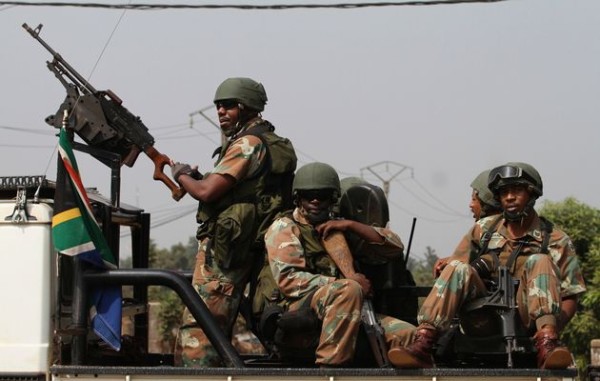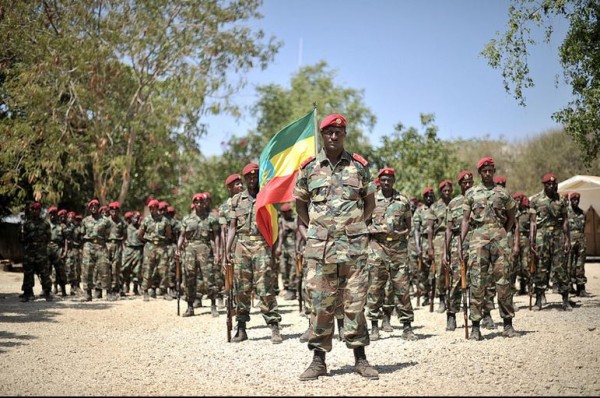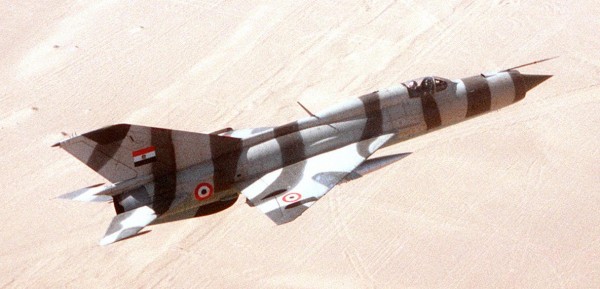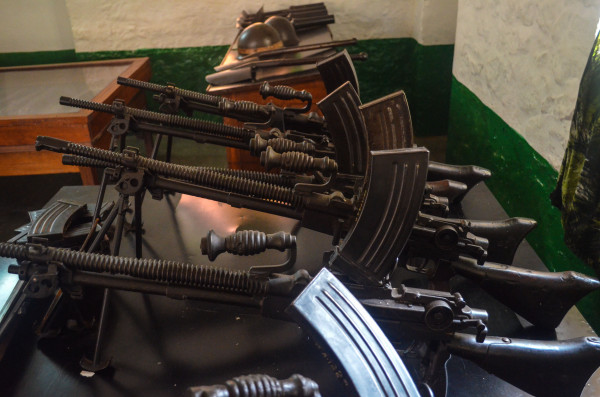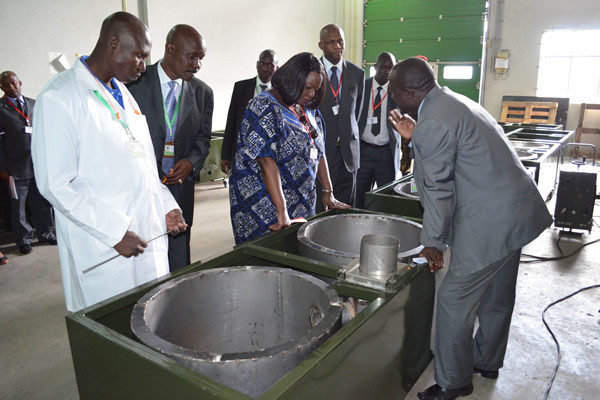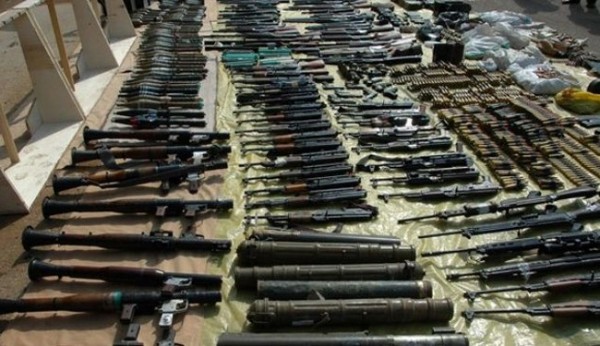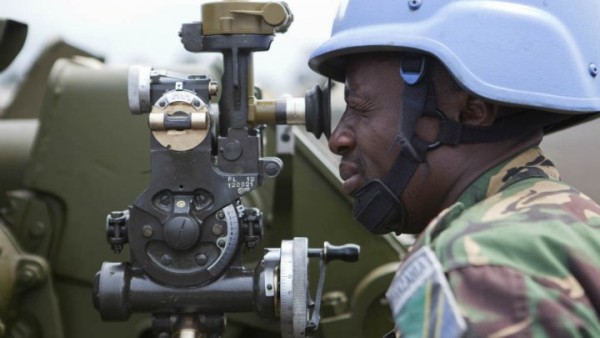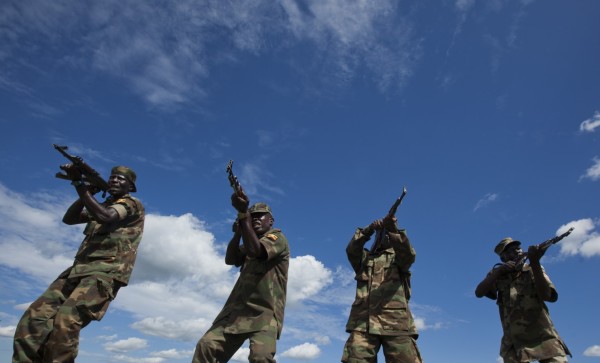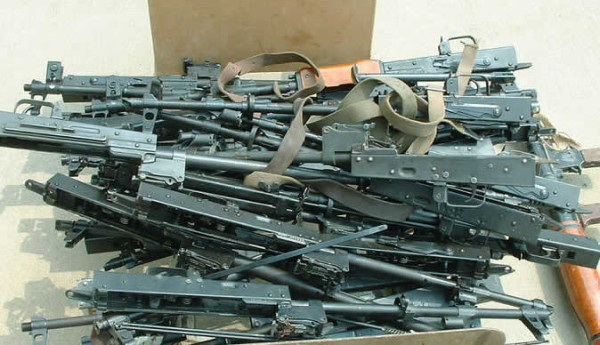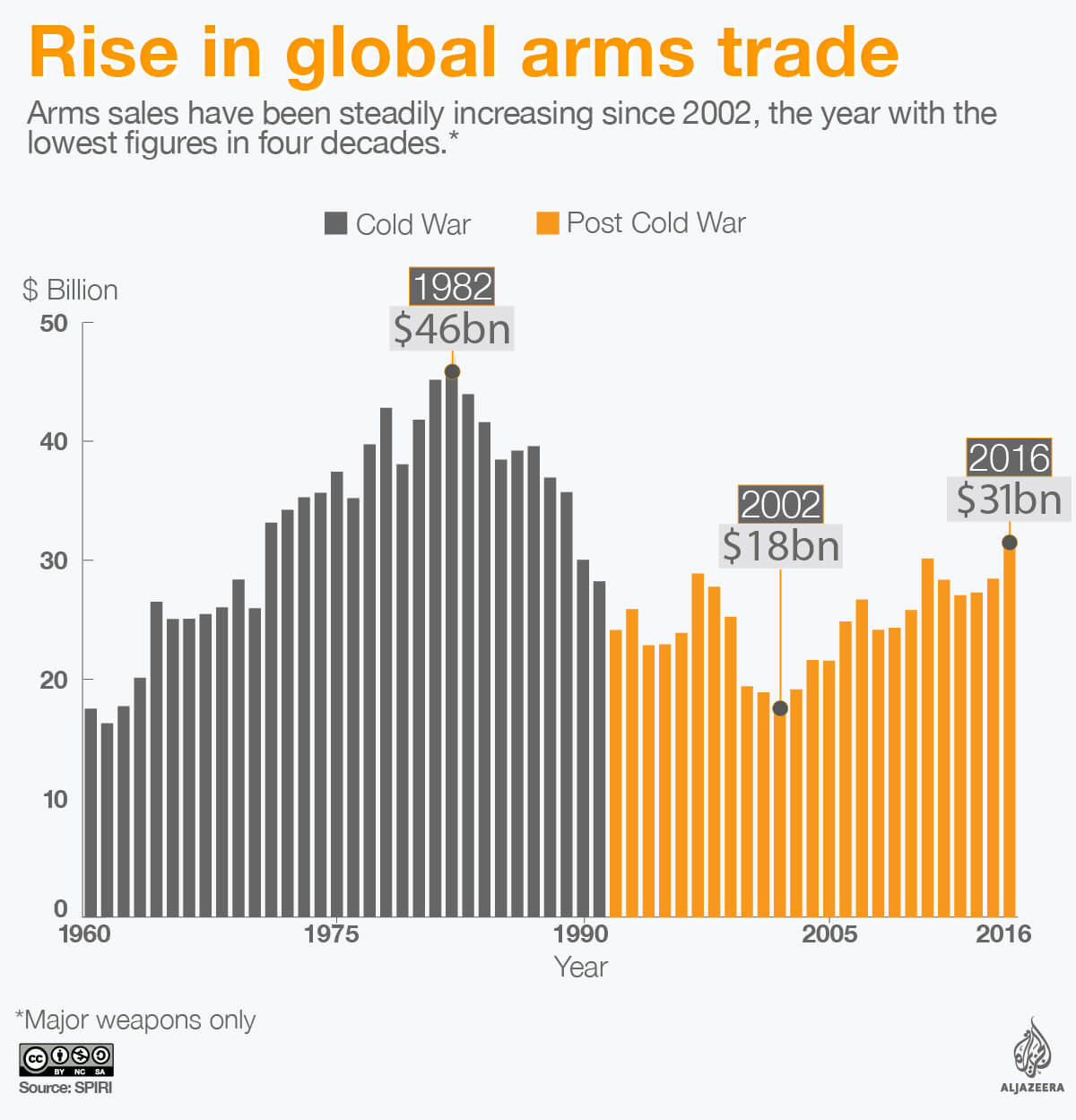MTN uganda must have faced the toughest times in its business spel for the beginning of this year.But as many may be aware,MTN's problem are not of today only but a series of mistakes and misunderstanding that gradually escalated from around mid 2010 through to early days of 2019.The most alarming of these mistakes was the unsurety of the customers privacy and the unrealistic licence it got after a long sacffle with the government of the republic of uganda.
Many people have been wondering how or if its true that mtn and its staff was involved in data leakages,exposing customers privacy to intrusion or any sort of espionage.on the first two i can assure you that mtn face data leakages and its customers were exposed to dangers of loosing their private data to dubious intruders,plus fraudulent acts that did occur mostly on mobile money services,its really annoying that mtn when contacted on these fraudulent issues alway would take a low pace and in most case ignore it in tge long end.many Ugandans have lost alot of money to these fraudulent acts where people even started alleging that such fraudsters may be in connivance with the employees of mtn.This allegation is true because its not easy for an intruder to know the time and amount of money one has on his Mobile money account.If it isn't,then its a vivid proof that customers privacy was subjective to intrusion and worse oo it all for a long period of time.To many who used Mtn simcards ti access internet or did register with their phone numbers on some social media networks,then what i can tell is that you are not safe!!To prove tha,try to read posts i wrote earlier.Mtn has been a failure in responding to customers' issues and mainly issues relating to mobile money.There are alot of scenerios where money is accidentally sent on phone numbers which are not already registered especially when one needs to use them immediately,and on some simcards when one forgets his pin,it takes lot time to be given another pin or some times the money ends up geting stuck on the simcard forever!!!! I do not know why customer care for mtn is so reluctant on mobile money issues. A lot of money is stuck on mobile money accounts!!!!! Now,if its on these simcards and stuck there,who uses them?i know of many cases which have been presented in 2014 and mtn did nothing to help them retrieve that money!!!However, this problem shouldnt be solely blamed on mtn,for all communication companies are too reluctant in solving mobile money issues!!!!
Mtn has also been also carrying out some indirect robbery in many ways:
Setting up promotional adverts that send sms to customers who at times are deductions made on airtime even if the owner does not know or didn't subscribe!! Imagine,if mtn has over ten million subscribers and sends messages that leads to deduction of 50-200 shillings,calculate the amount mtn bags?
There are services that mtn sets that are mainly unrealistic and in long end customers loose even if there money is taken!!!imagine a service like mtn AYO *296#, how many people have ever benefited from this? And its annoying that most people in villages end up subscribing to these services without knowing what they are!i meet an old woman in kyenjojo town complaining that mtn always takes her 50 shillings ...and when i took a look into her message box,it was AYO!!! I asked her if she did reguster for it and she told me that mtn agents came telling them that it was a must ti register for the service!!!!!!
There is also another question i have always been asking myself"why is mtn only interested in employing people who in most cases do not care about customers or those who do not have much knowledge about communication technology "....MTN should stop running for these cheap people!!!it is not a must that people who work at the receiption or correspondence desk must be beautiful ladies who in most cases are dull and arrogant!!!!!!
There are alot of mtn simcards that are registered with names that are not of the real names of people using them.These are the simcards that are used fraud.It is even extra dangerous for such cards can be used by cyber criminals or other criminals like terrorists and the one whom they used their real names may follow victim.It is even worse because in such incidents the police crime investigators get alot of confusion and its in this confusion that the terrorists and other criminal can continue to expand their terrible acts.MTN uganda is real confused,how does some register a phone in names not the same as those registered on his mobile money account?This grave ambiguity is too dangerous for on such phone numbers registered in names not similar to ones holding ans using them,if he or she is a fraudulent character, can register in names of another person mainly to vindicate him or her in his criminal acts.
I really do not know if MTN and other companies know thatsome foreigners do carry on the business of simcard registration, its shocking how a Congolese or rwandese can register a ugandan for a simcard?how can he prove that he is really who he says or claims he is?These foreigners do not mind about the requirements, they only need money!! Its not only in telecom busness ,i recently saw a rwandese making bottled drinks and am sure it has no quality!!! We may in long end find ugandans facing dangers while UCC and UNBS are just sleeping!!! Where and how do people get authority to selk beverages not certified by UNBS?
On espionage i do not have much say on MTN as a company or its employee but as i ealier wrote and later his excellence Kaguta Museveni talked about it that now uganda has a sophisticate technological equipments to smoke out these spies and all others trying to carry on espionage against Uganda.i just beg you to stop before you become the next to be deported! Am not writing because i support the government, or because am a government spy as many allege me to be or because am a supporter of Museven,Am just making you aware that its totally hard to carry on espionage against uganda through the phones now!!!! These warning goes to those who think VPNs will help you.....
Lets get a look at how MTN's problems started periodically!
On 14/06/2011,UCC issued a tarrif guideline as a way of trying to fight"anti competitive peicing practices " where telephone companies were prevented from charging on net rates less than 79% of the then ugx 131 per minute of interconnection that gave a ug x 92a minute floor price a thing that MTN did not like.As a result on 2nd september 2011,MTN uganda increased its on net tariff to ug x 4 per second on which MTN uganda CEO themba khumalo by then said that the tarriff needed to be adjusted to prevent mtn from self destruction.. Even the overall CEO of mtn by then,Sifiso Dabengwa described the direction on the market as unsustainable and would hamper investment in the communication sector.On 25/10/2012,MTN Uganda and its senior officials faced a tax evasion lawsuit, brought by a former employee charged with stealing from the company. The Daily Monitor cites the CEO of the cellco Mazen Mroue as saying: ‘In mid-September, MTN Uganda discovered suspicious supply chain payments made to several service providers. The MTN Group forensic team and Uganda police were engaged to investigate the suspicious transactions. This resulted in the charging of two staff members implicated in the investigation.’
Naphtal Were, one of the former employees involved accused of stealing an estimated USD4.1 million from the operator, has accused MTN’s bosses of evading payment of UGX70 billion (USD26.68 million) in taxes. Mroue dismissed Were’s allegations as ‘vague and baseless.’ Were’s lawyers have called for Ugandan authorities to issue arrest warrants for twelve MTN officials – mainly based in South Africa, rather than Uganda – for failing to attend pre-trial proceedings.
Moreover,at the beggining of 2012,MTN Uganda had been targeted by a scam, costing the company ‘billions of shillings’ (one billion Ugandan shillings =USD 400,000). According to IT News Africa which cited a statement released by the company, the scam involved two companies and may have exploited new features of MTN’s Mobile Money services. The police said that customers’ finances remained secure. The statement read: ‘MTN Uganda’s internal Money Laundering System recently detected incidents of internal fraud. The police were notified and are conducting investigations into the extent of the fraud, which restricts us from providing any specific details.’Did the investigation come to a meaningful conclusion?
23rd november 2012,MTN filed a complaint against one of Uganda’s chief magistrates after the group’s senior executives were summoned to face charges of fraud and tax evasion. MTN filed its grievance with the Ugandan judicial service, accusing the magistrate of unprofessional conduct, claiming that the 13 MTN officials called to appear before the court had not been made aware of the summons, only hearing of them through media reports.
A statement from the MTN Group said: ‘The complaint notes that the magistrate issued summons for the Directors and Executives of MTN to take a plea, yet the court record has no formal charges and the said summons were not reflected in the court record. It is further noted that the summons are dated 7th November 2012, a day after the same magistrate had transferred the case to the Director of Public Prosecutions to investigate the allegations….A perusal of the summons showed that, although the order to issue them was made on the 19th November 2012, they were dated 7th November 2012. There was no charge sheet on the record nor was there a record of proceedings before her between 6th November, when she pronounced her ruling in an open court with counsel for all parties present, and 19th November, when the order was supposedly issued.’
As previously noted by CommsUpdate, MTN’s executives are charged with evading UGX70 billion (USD26.68 million) in taxes. The accusations were made by former MTN employee, Naphtal Were, who had been sacked over suspicions that he had stolen from the company. Following an investigation, Were is now facing charges for defrauding MTN Uganda of USD5 million and attempted fraud of UGX600 million. In addition, Ugandan authorities recovered eleven solar power inverters – with an estimated value of UGX140 million – believed to have been stolen from the operator.
MTN’s complaint added: ‘For the Magistrate to have allowed that obviously ill-intentioned private person to obtain criminals summons in the manner she did, thus affording him the opportunity to have the same published to the world, knowing the negative consequences that portray, demonstrates gross recklessness and absolute indifference against our clientUSD
On 15/3/2013,The Director of Public Prosecutions (DPP) has withdrawn a case against South African-backed MTN Uganda accusing the operator of tax evasion. IT News Africa wrote that the charges were dropped on the basis that there was no evidence to prosecute. As previously had been reported by CommsUpdate, a group of MTN’s executives were charged with evading UGX70 billion (USD26.68 million) in taxes. The accusations were made by former MTN employee, Naphtal Were, who had been sacked over suspicions that he had stolen from the company.why and how was the case dropped?
On 10/9/2012,MTN Uganda,alleged that it had been ‘conned’ out of UGX9.5 trillion (USD3.772 billion) in undelivered network equipment. The daily monitor paper claimed that Ugandan authorities investigated a fraud case filed by South-African backed MTN against Threeways Shipping Group Ltd, with the courts blocking the accounts of the shipping company at the behest of investigators. Threeways has been accused of ‘submitting fictitious invoices totalling to over USD3.8 billion’ between 2009 and 2012 as shipping charges for network equipment that was paid for by MTN yet no goods had been shipped by the supplier. On the need to block the accounts of Threeways, police told the Anti-Corruption Court: ‘If the… accounts are not blocked, [Threeways] may transfer/withdraw the monies on the accounts and as such MTN Uganda Limited and the government of Uganda will lose a colossal amount of money which may be difficult to recover.’
Jeff Baitwa, the managing director of Threeways said that the company was not aware of any fictitious invoices given to MTN rather, Baitwa held that the cellco had queried two invoices ‘which we clarified and the matter went quiet and the next thing we see is the correspondences with the police.
January 2018,a group of operators under the umbrella of the Wireless Applications and Service Providers Association of Uganda (WASPA-U) accused the mobile market leader of violations of regulations. They filed a petition which raised a number of charges against MTN, ranging from the under-declaring of revenues, to unethical business practices, anti-competitive behaviour, the illegal takeover of their businesses, violation of laws, and withholding of payments to local companies.
A new body had been set up on 17/8/2010 to protect the interests of mobile phone users in Uganda. A report from AllAfrica says that the Mobile Telephone Watchdog will help guard consumers against bad practice by the country’s cellular operators. Uganda’s wireless sector was home to more than 4.4 million subscribers at the end of June 2010 according to TeleGeography’s GlobalComms Database. MTN Uganda controlled around 46% of the market, with Zain Uganda claiming around 19%, and Uganda Telecom and Warid Telecom accounting for approximately 16% each. The remaining 3% is split between Orange Uganda and I-Tel.In 2012, Uganda Communications Commission (UCC) started follow up on its threats to impose penalties on wireless providers for failing to meet quality of service (QoS) standards. The watchdog announced that it would inform operators within the next two weeks if they were to be issued fines. Godfrey Mutabazi, UCC executive director said: ‘We started doing benchmarking and we are compiling the results and within the next two to three weeks, we shall release the results and once we approve the sanctions, then the fines will be imposed.’
UCC responded in February of that year to a ‘public outcry’ over the poor quality of service delivered by the nation’s cellcos: Mutabazi was quoted as saying that the UCC was ‘overwhelmed by the number of complaints from the public.’ The regulator’s QoS survey, conducted from May to September 2011, demonstrated that none of the country’s half-dozen operators met minimum standards for service quality. The report showed that, despite improvement from the regulator’s previous survey, several cellcos still blocked more than 10% of calls, far in excess of the 2% maximum stipulated by the UCC. Dropped calls were less problematic, with no operator prematurely disconnecting more than 5% of calls: nevertheless, all cellcos exceeded the 2% maximum in this field.
In March 2011 MTN threatened to terminate its interconnection agreement with UTL, preventing UTL customers from making calls to MTN customers and vice versa. The watchdog had threatened punitive measures against UTL should it fail to comply. Rival cellco Airtel Uganda has raised similar complaints against UTL, claiming UGX8 billion in unpaid interconnection fees, but no decision had yet been reached.
On 13/6/2011,Uganda Telecoms Limited (UTL) appealed to the High Court decision that ruled in favour of MTN Uganda regarding unpaid interconnection fees. A spokesperson for the telco has sought to clarify the situation and claims the amount under dispute was UGX5 billion (USD2.04 million), not UGX20 billion as reported by the Uganda Communications Commission (UCC).
As you may be knowing,. 69% of UTL was owned by the Libyan government through its investment vehicle, Libyan Africa Portfolio (LAP), with the remaining 31% owned by the Ugandan government. UN sanctions in March required the freezing of Libya’s assets for the duration of its on-going civil war, but in order to prevent the loss of jobs, the Ugandan government took over complete control of the company. Sanctions or fines imposed by the UCC on UTL in the short term will only undermine the government’s efforts to keep the telco afloat.
On 6th november 2014,Uganda’s Court of Appeal ordered incumbent fixed line operator Uganda Telecom Limited (UTL) to pay the full UGX6 billion (USD2.2 million) which is owed to cellco MTN Uganda for unpaid interconnect fees covering the period March to December 2007. The court has also ordered UTL to pay interest at 8% plus a late-payment fee of UGX100 million. UTL had already paid half of the money owed following an earlier legal challenge by MTN and was ordered to hand over the remaining UGX3 bilhadn, the court said.
By 18/9/2018,Uganda’s state-owned fixed and mobile operator Uganda Telecom Ltd (UTL) had lost a legal appeal in a long-running interconnect dispute with domestic rival MTN. The country’s Supreme Court had upheld earlier rulings by the Higher Court and Court of Appeals which ordered UTL to pay overdue interconnect fees to MTN, which have been owed since 2008. UTL was then to pay more than UGX6 billion (USD1.65 million) to MTN, including UGX3.4 billion in outstanding interconnect payments and the remainder to cover interest and fees.
The case centred on a 2007 agreement between UTL and the South Sudanese operator Gemtel. Prior to gaining independence from Sudan and without an international dialling code of its own, South Sudan requested permission to use Uganda’s international code of +256. MTN classified Gemtel calls as local as the customer dialled a local number, whilst UTL defined them as international(you must take a good note here). For the period March to December 2007, MTN invoiced UTL UGX6.5 billion for interconnect fees, but UTL paid only UGX3.47 billion, based on the international interconnect fee of USD0.50 rather than the local tariff of UGX100.
On 14th march 2014,Ugandan consumer advocacy groups petitioned the government to protect the rights of telecoms customers at a meeting with the Uganda Communications Commission (UCC). A representative from the Uganda Consumers’ Protection Association (UCPA) called for subscribers to be compensated for poor quality of service (QoS), billing errors and other issues: ‘We demand for consumer redress by way of reasonable compensation of losses made by consumers arising from charges on unsolicited services [and] unsuccessful delivery of services.’ The spokesperson claimed that the current process for consumer complaints takes too long, and that there was no solution in place to tackle unsolicited messages and dropped or blocked calls. Other advocacy groups, meanwhile, complained about issues of unexplained charges, money transfers and fees for unsolicited services.
Representatives from telcos argued that the majority of issues were not their fault, blaming vandalism and theft for the QoS troubles: Uganda Telecom Ltd’s (UTL’s) chief executive noted that in 2013 the company’s fibre-optic backbone network was cut 1,500 times, whilst a senior official from Airtel added that it had had 106,000 litres of fuel stolen from its sites, in addition to cuts along its fibre network. MTN’s chief legal officer, Anthony Katamba claimed that it is the operators that lose out, rather than customers: ‘When there is a bad experience, the operator suffers more than the customer. We lose money,meaning that MTN was interested in money more than offering good services to ugandans. Operational environment has not been easy with power cuts, fuel stolen; access roads to sites are terrible. The supporting infrastructure impacts on our services.’
Upon receiving the petition, ICT minister Nyombi Thembo gave no indication of what action, if any, would be taken to address the issues raised, except to note that the government’s focus was no longer on affordability and availability, but on quality and privacy.
On 16th august 2018, authorities in Uganda asked MTN Group’s Ugandan unit to list some of its shares on the Uganda Securities Exchange (USE) as a condition for the renewal of its operating licence, which is due to expire in October. Reuters quoted the head of the Uganda Communications Commission (UCC), Godfrey Mutabazi, as having said that Ugandans should be able to own a stake in MTN Uganda, which has been operating in the country for 20 years. ‘We are evaluating the conditions of [the licence] renewal and that’s one of the points we are discussing,’ Mutabazi said referring to a possible USE listing. Further, when pressed on whether the condition was a requirement for extending MTN Uganda’s licence, he said, ‘that’s right’ and added that the firm had ‘not shown any resentment to that proposal’.
On 25/10/2012,MTN Uganda and its senior officials faced a tax evasion lawsuit, brought by a former employee charged with stealing from the company. The Daily Monitor cites the CEO of the cellco Mazen Mroue as saying: ‘In mid-September, MTN Uganda discovered suspicious supply chain payments made to several service providers. The MTN Group forensic team and Uganda police were engaged to investigate the suspicious transactions. This resulted in the charging of two staff members implicated in the investigation.’
Naphtal Were, one of the former employees involved accused of stealing an estimated USD4.1 million from the operator, has accused MTN’s bosses of evading payment of UGX70 billion (USD26.68 million) in taxes. Mroue dismissed Were’s allegations as ‘vague and baseless.’ Were’s lawyers have called for Ugandan authorities to issue arrest warrants for twelve MTN officials – mainly based in South Africa, rather than Uganda – for failing to attend pre-trial proceedings.
Moreover,at the beggining of 2012,MTN Uganda had been targeted by a scam, costing the company ‘billions of shillings’ (one billion Ugandan shillings =USD 400,000). According to IT News Africa which cited a statement released by the company, the scam involved two companies and may have exploited new features of MTN’s Mobile Money services. The police said that customers’ finances remained secure. The statement read: ‘MTN Uganda’s internal Money Laundering System recently detected incidents of internal fraud. The police were notified and are conducting investigations into the extent of the fraud, which restricts us from providing any specific details.’Did the investigation come to a meaningful conclusion?
23rd november 2012,MTN filed a complaint against one of Uganda’s chief magistrates after the group’s senior executives were summoned to face charges of fraud and tax evasion. MTN filed its grievance with the Ugandan judicial service, accusing the magistrate of unprofessional conduct, claiming that the 13 MTN officials called to appear before the court had not been made aware of the summons, only hearing of them through media reports.
A statement from the MTN Group said: ‘The complaint notes that the magistrate issued summons for the Directors and Executives of MTN to take a plea, yet the court record has no formal charges and the said summons were not reflected in the court record. It is further noted that the summons are dated 7th November 2012, a day after the same magistrate had transferred the case to the Director of Public Prosecutions to investigate the allegations….A perusal of the summons showed that, although the order to issue them was made on the 19th November 2012, they were dated 7th November 2012. There was no charge sheet on the record nor was there a record of proceedings before her between 6th November, when she pronounced her ruling in an open court with counsel for all parties present, and 19th November, when the order was supposedly issued.’
As previously noted by CommsUpdate, MTN’s executives are charged with evading UGX70 billion (USD26.68 million) in taxes. The accusations were made by former MTN employee, Naphtal Were, who had been sacked over suspicions that he had stolen from the company. Following an investigation, Were is now facing charges for defrauding MTN Uganda of USD5 million and attempted fraud of UGX600 million. In addition, Ugandan authorities recovered eleven solar power inverters – with an estimated value of UGX140 million – believed to have been stolen from the operator.
MTN’s complaint added: ‘For the Magistrate to have allowed that obviously ill-intentioned private person to obtain criminals summons in the manner she did, thus affording him the opportunity to have the same published to the world, knowing the negative consequences that portray, demonstrates gross recklessness and absolute indifference against our clientUSD
On 15/3/2013,The Director of Public Prosecutions (DPP) has withdrawn a case against South African-backed MTN Uganda accusing the operator of tax evasion. IT News Africa wrote that the charges were dropped on the basis that there was no evidence to prosecute. As previously had been reported by CommsUpdate, a group of MTN’s executives were charged with evading UGX70 billion (USD26.68 million) in taxes. The accusations were made by former MTN employee, Naphtal Were, who had been sacked over suspicions that he had stolen from the company.why and how was the case dropped?
On 16/01/2019,Ugandan President Yoweri Museveni has said he is ‘astonished’ that the local telecoms regulator, the Uganda Communications Commission (UCC), has renewed the operating licence of MTN Uganda at a lower fee than originally announced. The firm has paid USD58 million for the ten-year renewal instead of the USD100 million fee which was set initially. The reduction has reportedly come after MTN said it would have to invest at least USD200 million to meet the conditions of a new national broadband policy, which aims to improve internet connectivity in rural areas.
A report from Reuters says President Museveni had written to the country’s ICT Minister and the Attorney General to say that he was ‘astonished’ by the UCC’s decision. He said that South African-owned MTN Uganda had ‘reaped vast profits, most of which have obviously been repatriated’. It has been suggested that MTN is required to list shares on the local bourse as part of the conditions for the renewal, though this has not yet been confirmed by the cellco.ditions of a new national broadband policy, which aims to improve internet connectivity in rural areas.
A report from Reuters says President Museveni has written to the country’s ICT Minister and the Attorney General to say that he was ‘astonished’ by the UCC’s decision. He said that South African-owned MTN Uganda had ‘reaped vast profits, most of which have obviously been repatriated’. It has been suggested that MTN is required to list shares on the local bourse as part of the conditions for the renewal, though this has not yet been confirmed by the cellco.
As you can read from above, Mtn's problems are not only of today's origin and can be traced from and in:
1.anti competitive behavior
2.evasion of taxes and internal fraud
3.violation of laws
4.withholding of payments to local companies
5unethical business practices
6.un declaration on revenues
7.poor services and uncertainties to consumers privacy/government privacy













